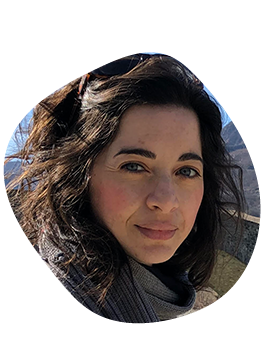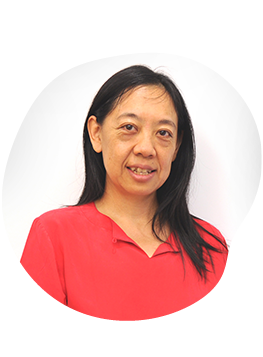Professor Serena Graziosi

Title: How additive manufacturing is shaping the design of new products
Keynote speech
Additive Manufacturing (AM) technologies are opening extraordinary and unpredictable design scenarios with tremendous impacts on product innovation in multiple industrial fields. Incredible nature-inspired forms and functions, lightweight multifunctional, multi-material, adaptable and tailored solutions are examples of strategies that can now be more intensively explored, thanks also to AM technologies, to enhance the way we live and enjoy life. The talk will explore these scenarios to stimulate the audience to push beyond current limits and contribute to this transformation.
Biography
Serena Graziosi is an Associate Professor at the Department of Mechanical Engineering of Politecnico di Milano. She is the leader of the Design for Additive Manufacturing (DfAM) Special Interest Group (SIG), supported and promoted by the Design Society. Her research interests are focused on investigating and developing new design methods, tools, and processes to foster product innovation. She also applies and contributes to the growth of technologies, including Additive Manufacturing and Virtual/Augmented Reality, which can help companies digitise and advance their processes. Concerning DfAM, her research interests include, but are not limited to, multi-material printing, architected materials, computational design.
Professor Ellen Yi-Luen Do

Title: Embedded Electronics and Tangible Interactions for Happy Human
Keynote speech
Everything is design, and technology is everywhere. In pursuit of happiness, we are embedding electronics and tangible interactions into our everyday life. We build physical and computational artifacts as objects to think with, and as methods and tools to make things work. We are interested in how everyday objects can be transformed into easy and accessible physical interactive systems for people of different demographics. A 3D print with embedded static magnets and Hall effect sensor can provide form, function and tactility for physical widgets with mechanical properties and printed paper markers can become tangible data visualizations or custom game controllers.
Biography
Professor Ellen Yi-Luen Do (ATLAS Institute & Computer Science) invents at the intersections of people, design and technology. She works on computational tools for design, especially sketching, creativity and design cognition, including creativity support tools and design studies, tangible and embedded interaction and, most recently, computing for health and wellness. She holds a PhD in Design Computing from Georgia Institute of Technology, a Master of Design Studies from the Harvard Graduate School of Design and a bachelor's degree from National Cheng Kung University in Taiwan. She has served on the faculties of University of Washington, Carnegie Mellon University and Georgia Institute of Technology. From 2013 to 2016, she co-directed the Keio-NUS CUTE Center in Singapore, a research unit investigating Connected Ubiquitous Technology for Embodiments.
Professor Mark Gross

Title: Creating Next-Generation Interactions
Keynote speech
User-centred design is a widely accepted and well-established design method, and surely it has resulted in better outcomes than design driven only by attention to technical concerns. Yet, unlike traditional engineering tasks (as Rittel says), “design problems are wicked problems.” This is especially true in designing interactions in boundary areas like augmented and virtual reality, tangible interaction, and haptics, where users have little experience. Therefore creating next-generation interaction devices requires methods that transcend traditional engineering problem-solving, incorporating—but going beyond—user-centered design methods. How can we embrace the inherent uncertainty in designing next-generation interactivity?
Biography
Mark D. Gross, director of the ATLAS Institute and professor of computer science, has worked on intelligent computer-aided design, virtual environments and design simulation, modular robotics and computationally enhanced construction kits and craft, tangible interaction design, sketch and diagram recognition, digital fabrication and more. He is the co-founder of Blank Slate Systems Incorporated and Modular Robotics Incorporated. He holds a PhD in Design Theory & Methods from the Massachusetts Institute of Technology.
Dr Mazher Mohammed
Title: Current perspective of Additive Manufacturing for Medical Applications and Innovations
Keynote Speech
For over 20 years Additive Manufacturing (AM) has been applied in the healthcare sector to realise a range of solutions to improve overall patient outcomes. The versatility of AM allows for the complexity of the human form to be reproduced with high precision, directly from 3D medical imaging, and for products to be fabricated in a variety of medically approved materials. Consequently, we are now realising a new paradigm in healthcare where device solutions are no longer generic, off-the-shelf components, but can be tailored to the unique anatomy of the individual. This has allowed for a range of exciting possibilities in areas such as teaching/training, pre-clinical planning, surgical intervention, post-surgical solutions and rehabilitation strategies. This presentation will review the current impact AM has make on the healthcare sector and highlight current and future opportunities in this space.
Biography
Dr Mazher Iqbal Mohammed is a Senior Lecturer in digital fabrication within the School of Design and Creative Arts at Loughborough University working within the Design for Digital Fabrications (DDF) research group. Dr Mohammed holds an EngD in Medical Device Bioengineering from Strathclyde University and an MPhys in Physics from Edinburgh University. His research interests focus on the use of digital technologies and design techniques for solutions in the area of health and wellbeing. He is particularly interested in the intersection of disruptive technologies such as Additive Manufacturing, Computer Aided Design (CAD) and data driven processes to develop innovative and practical solutions in fields ranging across healthcare, humanitarian technologies, closed-loop sustainable manufacturing and Industry 4.0. Dr Mohammed also has a strong focus on translational research which has resulted in several novel solutions in areas of facial prosthetics, implantable devices and closed loop sustainable manufacturing systems for humanitarian aid.